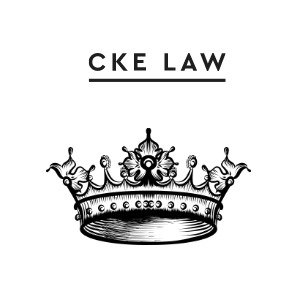Best Domestic Violence Lawyers in United Kingdom
Share your needs with us, get contacted by law firms.
Free. Takes 2 min.
Free Guide to Hiring a Family Lawyer
Or refine your search by selecting a city:
List of the best lawyers in United Kingdom
About Domestic Violence Law in United Kingdom
Domestic violence in the United Kingdom is recognized as a critical social issue and encompasses a broad range of behaviors inflicted by one partner upon another within a domestic setting, such as in marriage or cohabitation. These behaviours can include physical, emotional, psychological, financial, or sexual abuse. The laws in the UK aim to protect victims and prosecute offenders effectively. The Domestic Abuse Act 2021 is one of the significant legislations that provide comprehensive measures for tackling domestic violence, highlighting the government's commitment to eradicating this maltreatment.
Why You May Need a Lawyer
If you are a victim of domestic violence, seeking legal advice can be pivotal for several reasons:
- Obtaining a Protective Order: A lawyer can assist in applying for protective orders, such as non-molestation orders or occupation orders, to ensure your safety and that of your children.
- Filing a Complaint: Legal expertise is crucial for filing a complaint effectively with the police, ensuring your rights are protected, and the abuser is held accountable.
- Divorce or Separation Proceedings: Domestic violence often intersects with family law matters, including divorce and child custody, where a lawyer can represent your interests.
- Criminal Charges: If you are facing accusations of domestic violence, a lawyer can help defend against these allegations and provide guidance through the legal process.
- Access to Support Services: Lawyers can connect you with essential support services, including counseling and housing assistance.
Local Laws Overview
The legal framework concerning domestic violence in the UK encompasses multiple areas. Key aspects include:
- The Domestic Abuse Act 2021: This legislation defines domestic abuse, introduces domestic abuse protection orders, and establishes the Domestic Abuse Commissioner.
- Criminal Convictions: Acts of domestic violence can lead to criminal charges, including assault, stalking, harassment, and coercive control, each with corresponding legal penalties.
- Family Law Act 1996: Grants courts the authority to issue protective orders such as non-molestation orders and occupation orders to protect victims.
- Police Powers: Police have specific powers to arrest and detain the perpetrator if a domestic abuse incident is reported.
Frequently Asked Questions
What should I do if I am in immediate danger?
If you are in immediate danger, call the police immediately by dialing 999. They can respond quickly to ensure your safety.
How can I obtain a non-molestation order?
A non-molestation order can prevent someone from harassing you. You will need to apply to the family court, and it is advisable to get legal guidance for the application process.
What counts as domestic abuse?
Domestic abuse includes not just physical violence, but also emotional, psychological, economic, and sexual abuse within a domestic setting.
Can I receive legal aid for domestic abuse cases?
Yes, victims of domestic abuse may qualify for legal aid to cover costs in family law matters, provided they meet the financial eligibility criteria.
What is the role of police in domestic violence cases?
The police can arrest and charge perpetrators, issue domestic violence protection notices, and work with prosecutors to build a case against the abuser.
Are my children protected under domestic violence laws?
Yes, domestic violence laws also prioritize the safety and wellbeing of any children involved, and courts can issue orders to protect them.
How can I support a friend who is experiencing domestic violence?
Listen without judgment, offer your support, and encourage them to seek professional help. You can also suggest they contact specialized organizations for support.
Can I change my locks after separating from an abusive partner?
Yes, you can change your locks if you feel at risk, even more effectively if you have an occupation order granting you exclusive possession of the property.
What happens if the perpetrator breaches a protective order?
Breaching a protective order is a criminal offense, and the perpetrator can be arrested, face fines, or be subject to imprisonment.
How long does a non-molestation order last?
A non-molestation order typically lasts for a specified period set by the court, potentially including indefinite terms, with the possibility of renewal if necessary.
Additional Resources
For individuals seeking support or more information on domestic violence, the following resources may be helpful:
- National Domestic Abuse Helpline: Provides free and confidential support 24/7.
- Women’s Aid: Offers practical and emotional support for women experiencing domestic violence.
- Refuge: A charity specializing in domestic violence support.
- Citizens Advice Bureau: Provides free advice on legal and financial matters.
- Victim Support: Offers support services for victims of crime, including domestic violence.
Next Steps
If you require legal assistance in a domestic violence situation, consider the following steps to ensure you receive appropriate help:
- Contact a Solicitor: Seek a solicitor who specializes in domestic violence or family law for focused legal advice.
- Gather Evidence: Document any incidents of abuse, including photographs, messages, and witness accounts, to support your case.
- Reach Out to Support Services: Connect with local or national services and helplines for emotional and practical support.
- File a Police Report: If the situation involves criminal conduct, report the matter immediately to the police.
- Create a Safety Plan: Develop a plan for leaving the situation safely, potentially with the help of a legal professional or support service.
Lawzana helps you find the best lawyers and law firms in United Kingdom through a curated and pre-screened list of qualified legal professionals. Our platform offers rankings and detailed profiles of attorneys and law firms, allowing you to compare based on practice areas, including Domestic Violence, experience, and client feedback.
Each profile includes a description of the firm's areas of practice, client reviews, team members and partners, year of establishment, spoken languages, office locations, contact information, social media presence, and any published articles or resources. Most firms on our platform speak English and are experienced in both local and international legal matters.
Get a quote from top-rated law firms in United Kingdom — quickly, securely, and without unnecessary hassle.
Disclaimer:
The information provided on this page is for general informational purposes only and does not constitute legal advice. While we strive to ensure the accuracy and relevance of the content, legal information may change over time, and interpretations of the law can vary. You should always consult with a qualified legal professional for advice specific to your situation.
We disclaim all liability for actions taken or not taken based on the content of this page. If you believe any information is incorrect or outdated, please contact us, and we will review and update it where appropriate.
Browse domestic violence law firms by city in United Kingdom
Refine your search by selecting a city.

















